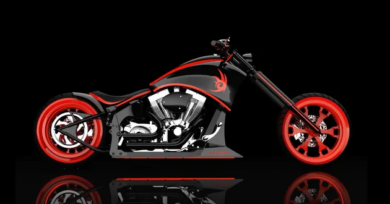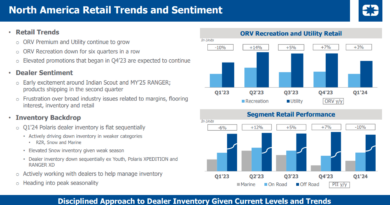NewsNews Enewsletter
MIC, Congressional Motorcycle Caucus meet over automated tech
The Motorcycle Industry Council, in coordination with the Congressional Motorcycle Caucus, hosted a briefing on “Intelligent Transportation Systems and Automated Vehicle Applications Impacts on Motorcycle Safety” on May 22. Caucus co-chairs, Reps. Tim Walberg, R-Mich., and Michael Burgess, R-Texas, addressed the Caucus’s mission to support riders through education and awareness, the potential for technologies to improve the riding experience and bring in new riders, and why the discussion on how motorcycles will factor into a connected and autonomous world is so important.
The briefing, moderated by Callie Hoyt, MIC’s manager of federal affairs, featured a panel of industry and research experts: Sam Campbell, BMW Group; Gary Higgins, American Honda Motor Company, Inc.; Shane McLaughlin, Virginia Tech Transportation Institute; and Eric Teoh, Insurance Institute for Highway Safety.
“Visibility on the road can equate to life or death for motorcyclists, and human error is a major factor in that equation. If emerging connected and automated technologies are developed to correctly detect and respond to motorcycles, their deployment holds the potential to considerably decrease motorcyclist injury and fatality rates,” Hoyt said.
Panelists discussed how connected and autonomous applications relate to motorcycles, how the applications can supplement one another, and the overall effect that widespread connected and automated technology can have on motorcycling.
Both the House and Senate have been developing legislation that would establish the first federal regulatory framework for autonomous vehicle (AV) technologies. The briefing recognized the importance of ensuring that the needs of everyone on the road — particularly motorcyclists — are addressed in AV legislative and regulatory landscapes, as well as in real-life applications.
Walberg, who is a motorcyclist, said there is significant opportunity for connected and automated vehicle technologies to improve safety for riders and stressed the need to ensure that they do so. He referenced his own riding experiences and the advanced vehicle technology testing and deployment in his home state, Michigan.
The panelists provided presentations on the work and research their companies are doing with these emerging technologies. Panelists agreed that connected technologies could bring about more immediate advances to motorcycle safety. Higgins of Honda and Campbell of BMW spoke about their companies’ engagement in the Motorcycle Safety Research Consortium and the industry-wide effort to establish a framework for connected motorcycles.
McLaughlin of Virginia Tech addressed concerns from the motorcycle community regarding autonomous vehicle applications and that they are being developed to consistently detect and respond to motorcycles.
The panelists were also excited about how connected systems in infrastructure can work with automated vehicle systems to allow vehicles to “see” not only the direct space surrounding them, but also much farther down the road. The panelists agreed that AV and connected technologies can help reduce rider anxiety and could even bring in new riders by making roads safer in part by removing many elements of human error.
Advanced technology will also affect motorcycle rider training programs, and the panel talked about the need to train riders on how to interact with connected and automated vehicles.
Burgess, who could not attend in person, noted in a statement that the meeting was a “starting point for further engagement on connected infrastructure as well as autonomous vehicles’ impact on the motorcycle community.” He also mentioned the opportunity to highlight motorcycle safety every May, which is Motorcycle Safety Awareness Month, for the more than 27 million American motorcyclists.
“The briefing provided an excellent opportunity to highlight motorcycling and the Congressional Motorcycle Caucus to congressional staff,” said Kathy Van Kleeck, MIC’s senior vice president, government relations, who was pleased that staff from many House and Senate offices were in attendance.
The Motorcycle Industry Council exists to preserve, protect and promote motorcycling through government relations, communications and media relations, statistics and research, aftermarket programs, AIMExpo, development of data communications standards, and activities surrounding technical and regulatory issues. As a not-for-profit, national industry association, the MIC seeks to support motorcyclists by representing manufacturers, distributors, dealers and retailers of motorcycles, scooters, ATVs, ROVs, motorcycle/ATV/ROV parts, accessories and related goods and services, and members of allied trades such as insurance, finance and investment companies, media companies and consultants.




